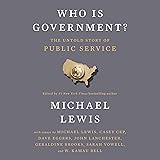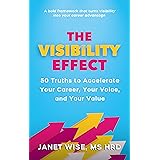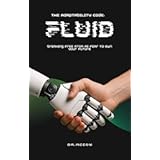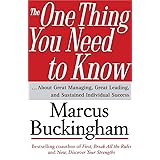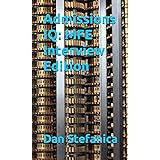Many of us were taught a simple truth. Success comes from hard work. We learn to keep our heads down. We focus on our tasks. Our effort should speak for itself.
However, as Gorick Ng, a Harvard career advisor, highlights in the video above, this isn’t the whole story. Hard work is crucial. But it might not be enough. There are hidden expectations. These are the “unspoken rules” of career advancement. They dictate who gets ahead. Understanding them changes everything.
Beyond Effort: The Shift from Useful to Impactful
Imagine showing up to a hockey game. You bring a baseball bat. You swing it with all your might. You try very hard. But you are playing the wrong game. This vivid analogy from Gorick Ng captures a common workplace challenge. Many professionals are useful. They complete tasks diligently. Yet, they might not be impactful. This distinction is key for getting promoted.
Being useful means checking off boxes. It means finishing assignments. Being impactful means much more. It involves understanding the larger goals. It means making a strategic difference. You connect your work to the team’s mission. You consider the business objectives. This goes beyond mere effort. It creates real value. It gets you noticed by senior leaders.
Recognizing Hidden Opportunities for Advancement
The workplace is full of subtle cues. High performers often act on them. They build relationships. They speak up in meetings. They ask thoughtful questions. These actions are not always in a job description. They are unspoken rules. They unlock career opportunities. A discerning eye is needed to spot them.
Consider these examples:
- **Speak Up:** Share an idea during a brainstorming session. Even a small contribution counts.
- **Build Relationships:** Offer help to a colleague. Connect with people across departments.
- **Ask Questions:** Seek clarity on a project’s goals. Show genuine interest in outcomes.
These actions elevate your presence. They demonstrate initiative. They show you are thinking beyond your immediate duties. You become a recognized contributor. This is how you move from being just useful to truly impactful.
Navigating the Insider-Outsider Divide
Some people have an inherent advantage. They come from families with professional experience. They have mentors. They learn unspoken rules informally. These are the “insiders.” They receive guidance around the dinner table. They understand the nuances of corporate life.
On the other hand, many are “outsiders.” They are often first-generation professionals. They lack these informal networks. They navigate new environments alone. They learn through trial and error. This path can be frustrating. It feels like an uneven playing field. However, being an outsider holds unique strengths. Your fresh perspective is valuable. Your lived experience offers new insights. These can be assets for any team.
From Trial and Error to Strategic Inquiry
Outsiders do not have to stumble blindly. Proactive learning is a powerful tool. You can uncover hidden expectations. It starts with asking the right questions. This reduces uncertainty. It ensures you are doing the right work. It saves precious time and effort.
One critical strategy is clarifying tasks. Do not just accept assignments. Take ownership. This means asking four specific questions. These questions ensure alignment. They lead to better outcomes. They prevent wasted effort.
Mastering Tasks: The Power of Why, What, How, and By When
Every task comes with hidden layers. Many treat tasks as items to check off. They rush to complete them. They then pass them along. But this misses a deeper opportunity. High performers clarify everything. They understand the context. They deliver precisely what is needed. They do it effectively. This is where the “Why, What, How, and By When” framework shines.
Clarifying “Why”: Understanding the Bigger Picture
Always ask “Why?” This question uncovers the project’s purpose. It reveals the broader objective. Why is this task important? How does it fit into larger goals? Understanding the “why” transforms your work. You move from task-doer to strategic partner. For example, if asked to research competitors, ask: “Why are we looking at competitors now? Are we considering a new product launch?”
Defining “What”: Precision in Deliverables
“What” refers to the exact output. What is the deliverable? Is it a bulleted email? A ten-page report? A presentation? Specify the format. Clarify the scope. This prevents misunderstandings. It ensures your effort is directed correctly. For instance, if asked for an update, ask: “What level of detail do you need? A quick summary, or a detailed breakdown?”
Detailing “How”: The Right Approach
Next, clarify “How.” How should this task be done? Should you brainstorm alone? Should you research online? Do you need to get feedback from others? This question helps define the process. It aligns your methods with expectations. It ensures efficiency. For example, if creating a proposal, ask: “How should I structure this? Should I include a financial analysis, or just focus on strategy?”
Pinpointing “By When”: Beyond the Formal Deadline
Finally, ask “By When?” This seems simple. Yet, it’s often more complex. A formal deadline exists. But there is often a hidden, unspoken deadline. Knowing the true urgency is vital. It allows you to prioritize effectively. It helps manage expectations. Always confirm: “By when do you need the first draft? Is there an internal deadline before the final submission?”
By asking these four questions, you gain control. You reduce errors. You increase impact. You show proactive thinking. This is a clear path to career advancement. It ensures your hard work is seen and valued.
Your Outsider Perspective: A Powerful Asset
Feeling like an “other” can be unsettling. It might feel like a disadvantage. However, it is truly a strength. Your unique journey brings a fresh viewpoint. You have lived experiences. You possess ideas others may lack. These diverse perspectives are invaluable. They can spark innovation. They can solve complex problems differently. Organizations need this diversity of thought.
Embrace your unique background. Share your perspective confidently. Your insights can strengthen your team. They can benefit the entire organization. This is not just about personal thriving. It is about making a real contribution. It is about achieving significant career advancement.


